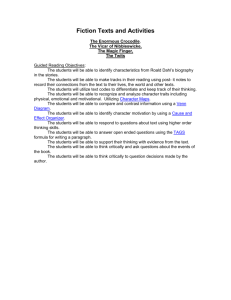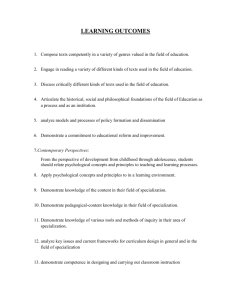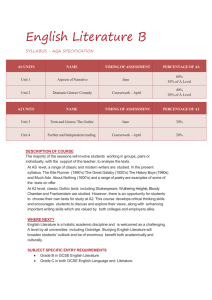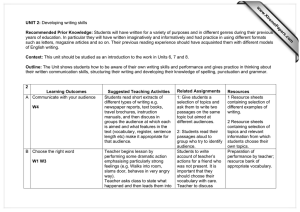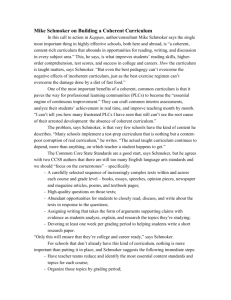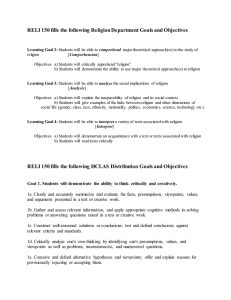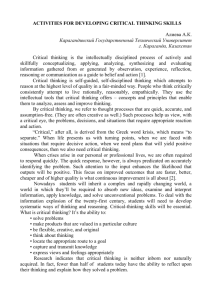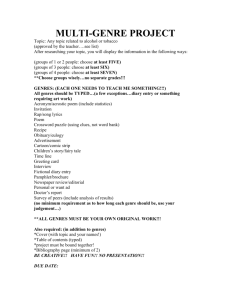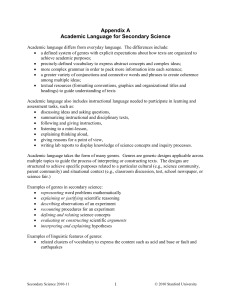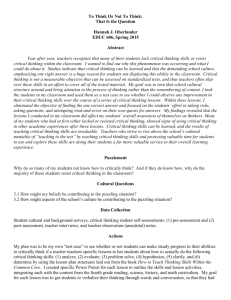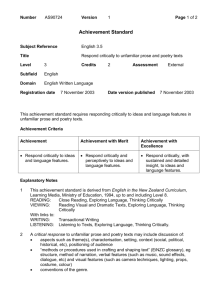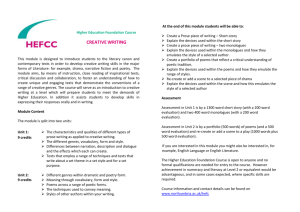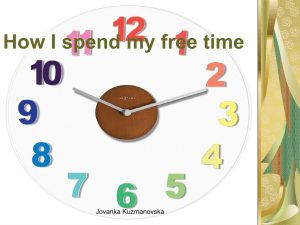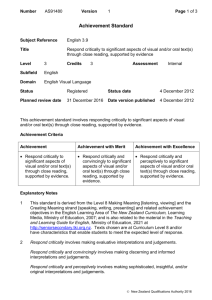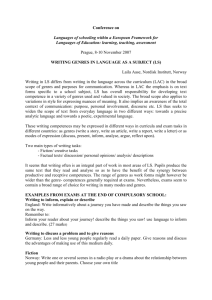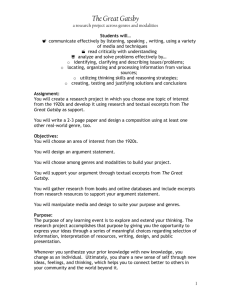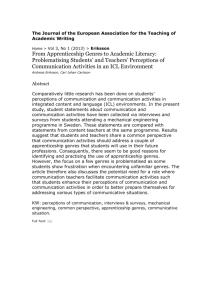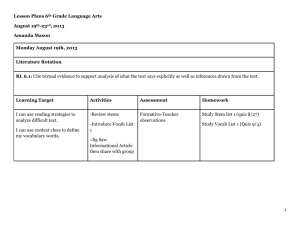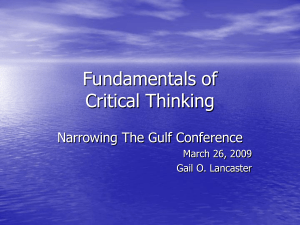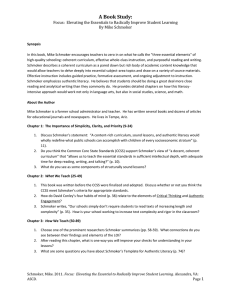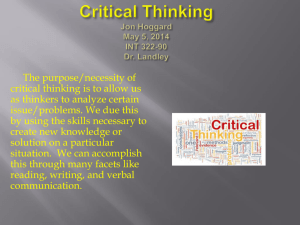Rationale for a 6th grade Reading Curriculum
advertisement
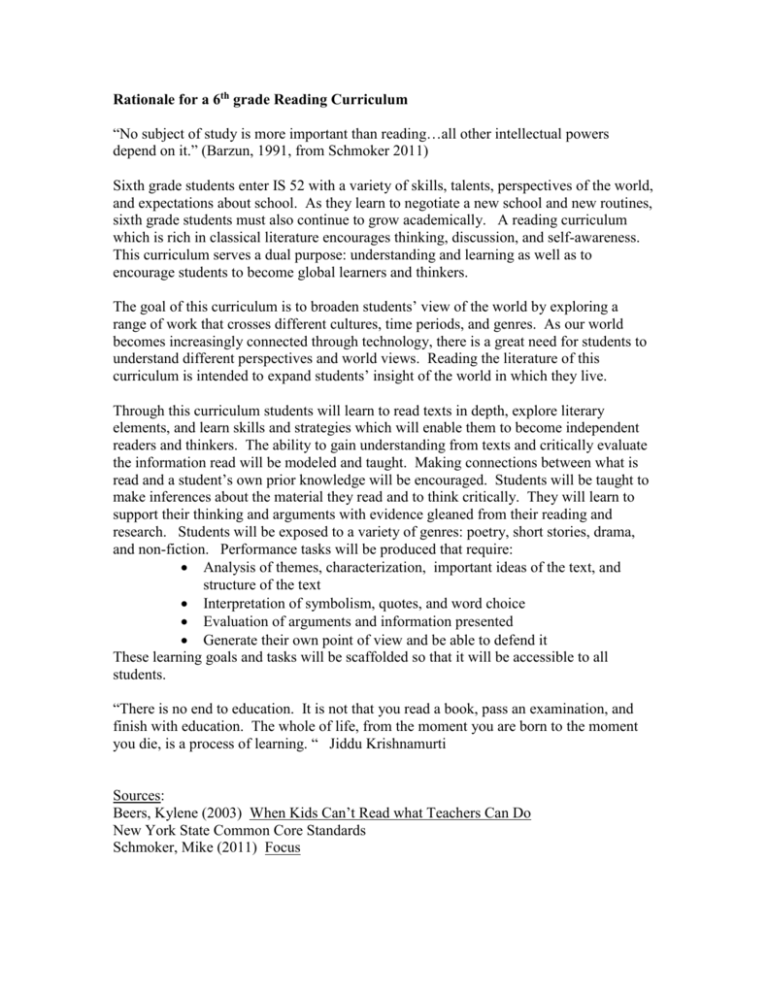
Rationale for a 6th grade Reading Curriculum “No subject of study is more important than reading…all other intellectual powers depend on it.” (Barzun, 1991, from Schmoker 2011) Sixth grade students enter IS 52 with a variety of skills, talents, perspectives of the world, and expectations about school. As they learn to negotiate a new school and new routines, sixth grade students must also continue to grow academically. A reading curriculum which is rich in classical literature encourages thinking, discussion, and self-awareness. This curriculum serves a dual purpose: understanding and learning as well as to encourage students to become global learners and thinkers. The goal of this curriculum is to broaden students’ view of the world by exploring a range of work that crosses different cultures, time periods, and genres. As our world becomes increasingly connected through technology, there is a great need for students to understand different perspectives and world views. Reading the literature of this curriculum is intended to expand students’ insight of the world in which they live. Through this curriculum students will learn to read texts in depth, explore literary elements, and learn skills and strategies which will enable them to become independent readers and thinkers. The ability to gain understanding from texts and critically evaluate the information read will be modeled and taught. Making connections between what is read and a student’s own prior knowledge will be encouraged. Students will be taught to make inferences about the material they read and to think critically. They will learn to support their thinking and arguments with evidence gleaned from their reading and research. Students will be exposed to a variety of genres: poetry, short stories, drama, and non-fiction. Performance tasks will be produced that require: Analysis of themes, characterization, important ideas of the text, and structure of the text Interpretation of symbolism, quotes, and word choice Evaluation of arguments and information presented Generate their own point of view and be able to defend it These learning goals and tasks will be scaffolded so that it will be accessible to all students. “There is no end to education. It is not that you read a book, pass an examination, and finish with education. The whole of life, from the moment you are born to the moment you die, is a process of learning. “ Jiddu Krishnamurti Sources: Beers, Kylene (2003) When Kids Can’t Read what Teachers Can Do New York State Common Core Standards Schmoker, Mike (2011) Focus
